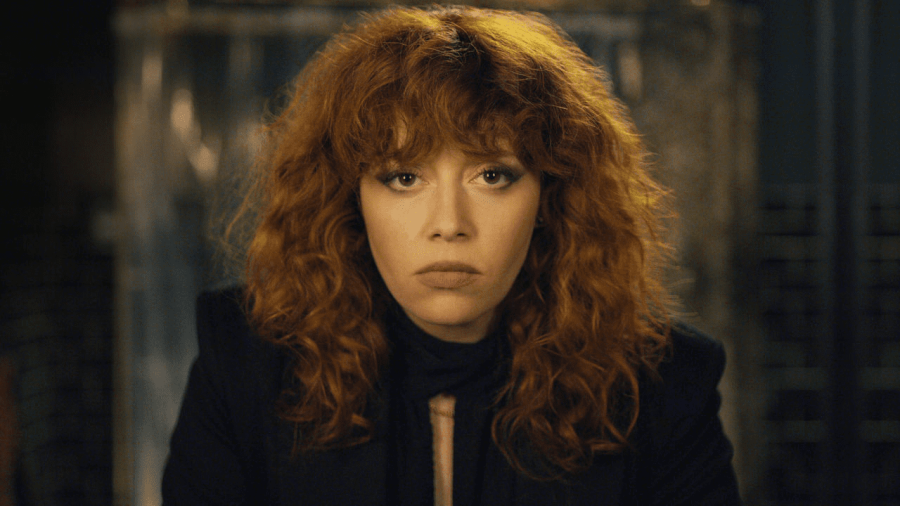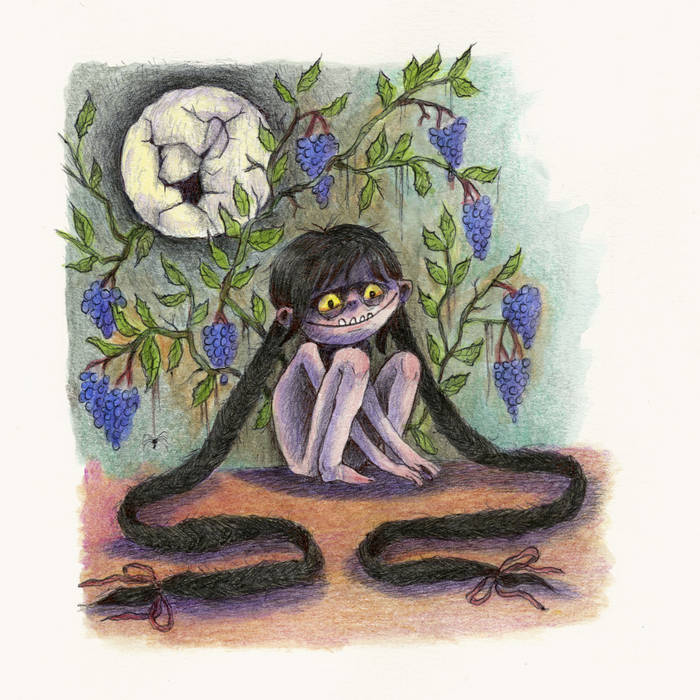Darkly comic and trippy, “Russian Doll” tells an affecting story by bringing its own take to the concept of a never-ending time loop.
Netflix’s “Russian Doll” opens with a fiery redhead, Nadia Vulvokov (Natasha Lyonne), glaring at her reflection in a slick, modish bathroom. It’s her 36th birthday, but she’s not feeling festive at this soiree prepared by her friend, Maxine (Greta Lee). Normally, she would be reveling with drugs and alcohol; instead, she’s having a mid-life crisis, and it doesn’t help that her cat has gone missing either. So, she ditches the party and hooks up with a stranger, only to have her night permanently end when she gets struck by a car and immediately dies. Or so we are to believe. Magically, she is standing across the bathroom mirror in the midst of her birthday celebration, alive and well once again.
At first, the show feels familiar to “Groundhog Day,” as both share a similar idea of reliving the same doomed day until the curse is broken with a powerful life lesson. However, “Russian Doll” begins to show its true offbeat vibe and stinging comedy when Nadia involuntarily dies over and over again in some of the dumbest ways, such as falling down the same flight of stairs or through the same hole twice. Harry Nilsson’s “Gotta Get Up” is also played after her every revival, viciously etching the tune’s upbeat opening into every viewer’s brain. We start to wonder if Nadia is trapped in a twisted purgatory that gets a kick out of torturing her. However, as she gradually pieces her situation together, we learn that her cyclical fate is an opportunity to heal her own mental scars as well as another’s. This is when the series deviates into its own innovative narrative, proving that it isn’t a rehashed or simplified tale merely teaching life morals or manners. The story takes shape in portraying how the smallest amount of empathy and care for someone else’s self-destruction can steer one toward a path of salvation and self-betterment.
Lyonne also balances the role of Nadia with earnestness and comedy. For example, Nadia’s initial disbelief of this Byzantine situation is hilarious, as she questions her own sanity and blames Maxine for lacing her joint with an overstimulating drug. Later, she recedes to her nihilistic and cynical self, assuming that she’s eternally stuck in limbo. And finally, her soul-searching moments resonate the most. Lyonne’s performative usage of a raspy, New York accent, hunched-over body language, and burning cigarette in hand adds to her character’s cutthroat and snappy disposition. She brings Nadia to life, peeling away Nadia’s rough and tough countenance that acts as a mask for the character’s broken and bleeding insides.
It’s also interesting to note that Nadia is a video game designer, which parallels her recursive situation; she is able to die and respawn in order to figure out this puzzling trial. Because she can countlessly rinse and repeat her death, the stakes initially don’t seem that high. However, the story plants an internal time limit; as Nadia keeps failing, things in her environment start to wither away and disappear like a computer glitch. The drama and peril of her predicament heightens, and it becomes unnerving yet thrilling to watch before it’s “game over” for her. Interestingly, it’s also as if her kismet has already been predetermined, like a video game character’s, forcing her to undergo this journey as if it were a mission in order to traverse her past trauma, mitigate another person’s misery, and ultimately come out on top.
Each episode of “Russian Doll” is equally enthralling, and the episodes culminate to a satisfying finale. The mystery suspended around Nadia’s immortality is enough to keep viewers intrigued. However, when the plotline plays around with theories of existentialism and quantum-mechanical multiverses, the show truly starts to segue into an abstract and transcendental territory. It resembles an eerie and surreal fever dream as we watch Nadia face a nightmarish universe that works against her. The show swirls into a strange amalgam of thriller, fantasy, and sci-fi genre. At the same time, it grows into a deep and multi-layered story as we continue to unpack it, much like a Russian nesting doll.
“Russian Doll” is an idiosyncratic and self-contained show that explores the melancholic and imperfect aspects of the human condition. However, it is also introspective and hopeful, indicating that grief and desperation can detrimentally prevail. It is beautifully ironic that each time Nadia dies, a part of her comes alive as well, for she is able to find more clarity from within the clutter of her mind and heart. Just as the separate pieces of a matryoshka doll are encased together at the end, Nadia is able to unify herself as one whole figure again.
Grade: A
Created by: Natasha Lyonne, Leslye Headland, Amy Poehler
Starring: Natasha Lyonne, Greta Lee, Yul Vazquez, Charlie Barnett, Elizabeth Ashley
Premiered: February 1, 2019 on Netflix
Image courtesy of Netflix














